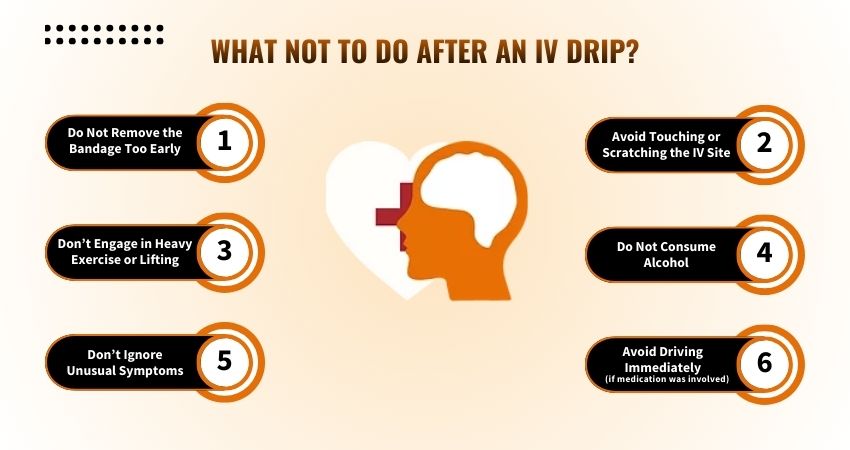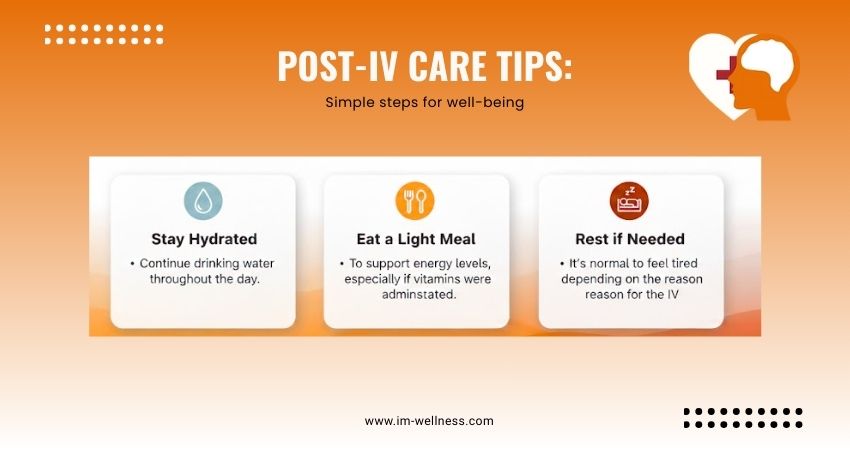After an IV drip, certain precautions are important to ensure proper healing, reduce the risk of infection, and maximize the benefits of the treatment. Here’s what to avoid after receiving IV therapy:

1. Do Not Remove the Bandage Too Early
Keep the bandage on for at least 30 to 60 minutes after the IV is removed. The small puncture site needs time to close and stop bleeding. Removing the bandage too soon may cause bleeding or expose the site to bacteria.
2. Avoid Touching or Scratching the IV Site
The area where the needle was inserted is vulnerable. Scratching, rubbing, or touching it with unwashed hands can lead to irritation or infection. Leave the site clean and dry for several hours after the procedure.
3. Don’t Engage in Heavy Exercise or Lifting
Avoid strenuous activities with the arm where the IV was placed for at least a few hours. Heavy lifting or high-impact workouts can strain the vein or re-open the puncture site, increasing the risk of bruising or swelling.
4. Do Not Consume Alcohol or Excessive Caffeine Immediately After
IV drips are often used to improve hydration and restore nutrient balance. Alcohol and caffeine are diuretics, which can dehydrate your body and reduce the benefits of the IV. Wait at least a few hours before consuming these.
5. Don’t Ignore Unusual Symptoms
Be alert to any signs of complications. Contact your healthcare provider if you experience:
- Redness, warmth, or swelling at the IV site
- Persistent pain or tenderness
- Dizziness or lightheadedness
- Fever or chills
These could indicate infection, inflammation, or an adverse reaction.
6. Avoid Driving Immediately (if medication was involved)
If your IV drip included medications like sedatives, pain relievers, or anti-nausea drugs, you may feel drowsy or lightheaded. It’s best to avoid driving or operating machinery until the effects wear off.
Post-IV Care Tips:

- Stay hydrated – Continue drinking water throughout the day.
- Eat a light meal – To support energy levels, especially if vitamins or medications were administered.
- Rest if needed – It’s normal to feel tired depending on the reason for the IV.
Bottom Line:
IV drips are generally safe and effective, but proper aftercare ensures you recover well and avoid complications. When in doubt, follow your clinic’s instructions or contact a healthcare provider.
FAQs: